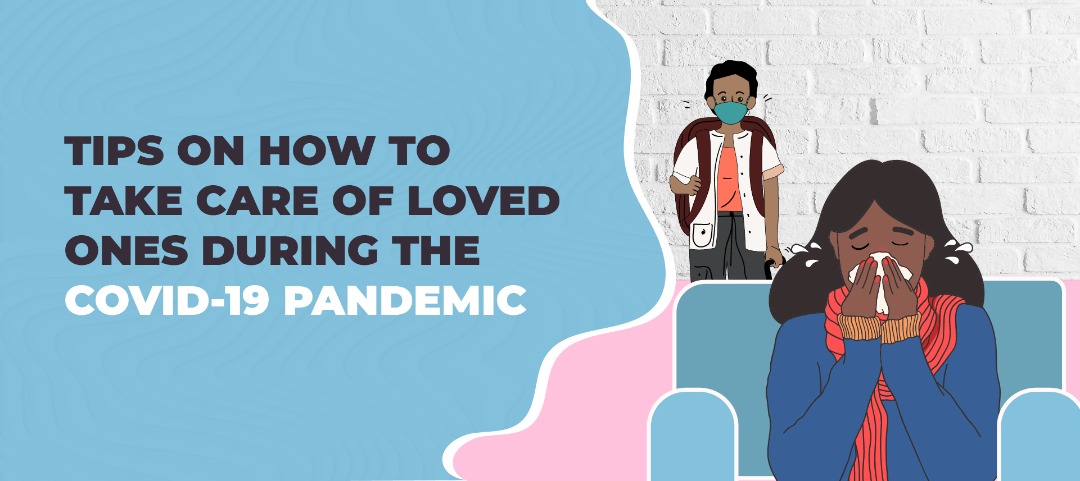Viruses, like coronavirus keep changing over time the more they circulate and sometimes, new variants of the virus may develop. Some variants of the coronavirus, such as Delta and Omicron, are now spreading more easily between people. This is why it is important to get vaccinated.
What COVID-19 vaccines is available in Uganda?
- AstraZeneca
- Pfizer
- Moderna
- Sinopharm
- Sinovac
- Johnson & Johnson
What are some of the common side effects of the COVID-19 vaccine?
- Pain
- Swelling
- Tiredness
- Headache
- Muscle pain
- Chills
- Fever
- Nausea
Contact your healthcare provider if side effects do not go away after a few days.
(SOURCE: Centers for Disease Control and Prevention)
Is it possible for someone who has gotten the COVID-19 vaccine to still get infected?
- Yes. The maximum level of protection from COVID-19 vaccines is not reached until several weeks after full vaccination. If you have a two-dose vaccine, this means that you don’t get full immunity until 2 – 4 weeks after the second dose. You can still become infected and ill during this time.While COVID-19 vaccines are highly effective against serious illness, hospitalisation and death, no vaccine is 100% effective. As a result, a number of vaccinated people will get infected and may fall ill with COVID-19 in spite of being fully vaccinated.
(SOURCE: World Health Organisation)
Who should be excluded from getting the COVID-19 vaccine?
- Those who have a history of severe allergic reactions to any of the ingredients of the COVID-19 vaccine.
- Those who have a fever over 38.5ºC on the day of the vaccine appointment. It is best to postpone until you have recovered.
- Those who have currently been confirmed to have COVID-19. Wait until you have completed the mandated isolation period and your acute symptoms have passed to get vaccinated.
(SOURCE: World Health Organisation)
Should pregnant women get the COVID-19 vaccine?
- Yes, pregnant women can get vaccinated. During pregnancy, you are at higher risk of serious illness caused by COVID-19. You are also at higher risk of delivering your baby prematurely if you contract COVID-19.
(SOURCE: World Health Organisation)
Should breastfeeding mother get vaccinated against COVID-19?
- If you are breastfeeding, you should get vaccinated against COVID-19 as soon as it is your turn. None of the current COVID-19 vaccines have live virus in them. This means there is no risk of you transmitting COVID-19 to your baby through your breastmilk from the vaccine. In fact, the antibodies you get after vaccination may go through your breast milk and help to protect your baby.
(SOURCE: World Health Organisation)
Should women who are on their period get the vaccine?
- Women can receive a vaccine at any point in their menstrual cycle.
(SOURCE: World Health Organisation)
What are the benefits of getting the COVID-19 vaccine?
- Getting vaccinated could save your life. COVID-19 vaccines provide strong protection against serious illness, hospitalisation and death. There is also some evidence that being vaccinated will make it less likely that you will pass the virus on to others, which means your decision to get the vaccine also protects those around you.
(SOURCE: World Health Organisation)
Is the COVID-19 vaccine safe for children?
- Vaccines are usually tested in adults first, to avoid exposing children who are still developing and growing. Now that the vaccines have been determined to be safe for adults, they are currently being studied in children.
- WHO-authorized COVID-19 vaccines are safe for most people of 18 years and older.
(SOURCE: World Health Organisation)
Do COVID-19 vaccines protect against the new variants?
- The COVID-19 vaccines provide different levels of protection to infection, mild disease, severe disease, hospitalization and death. Research is ongoing by thousands of scientists around the world to better understand how new virus mutations and variants affect the effectiveness of the different COVID-19 vaccines.
(SOURCE: World Health Organisation)
What’s the recommended dosage for the vaccine?
- The dosage you need depends on which vaccine you receive.
- Two doses of Pfizer vaccine should be given 3 weeks (21 days) apart.
- Two doses of Moderna vaccine should be given 4 weeks (28 days) apart.
- Only one dose of Johnson & Johnson’s Janssen vaccine should be given.
- Two doses of Sinopharm administered 3–4 weeks between the first and second dose.
- Two doses of AstraZeneca given with an interval of 8 to 12 weeks.
(SOURCE: World Health Organisation and Centers for Disease Control and Prevention)
What is a booster shot?
- A COVID booster shot is an additional dose of a vaccine given after the protection provided by the original shot(s) has begun to decrease over time.
SOURCE: (Centers for Disease Control and Prevention)
If we need booster shots are the vaccines working?
- Yes. COVID-19 vaccines are working well to prevent severe illness, hospitalisation, and death. However, public health experts are starting to see reduced protection over time against mild and moderate disease, especially among certain populations.
SOURCE: (Centers for Disease Control and Prevention)
Is one considered fully vaccinated if they don’t get a booster shot?
- Yes. Everyone is still considered fully vaccinated two weeks after their second dose.
SOURCE: (Centers for Disease Control and Prevention)
Note: Even when fully vaccinated, continue to correctly wear your mask, social distance and wash or sanitize your hands.
Tags:

Previous Article
PRESS STATEMENT
Next Article

